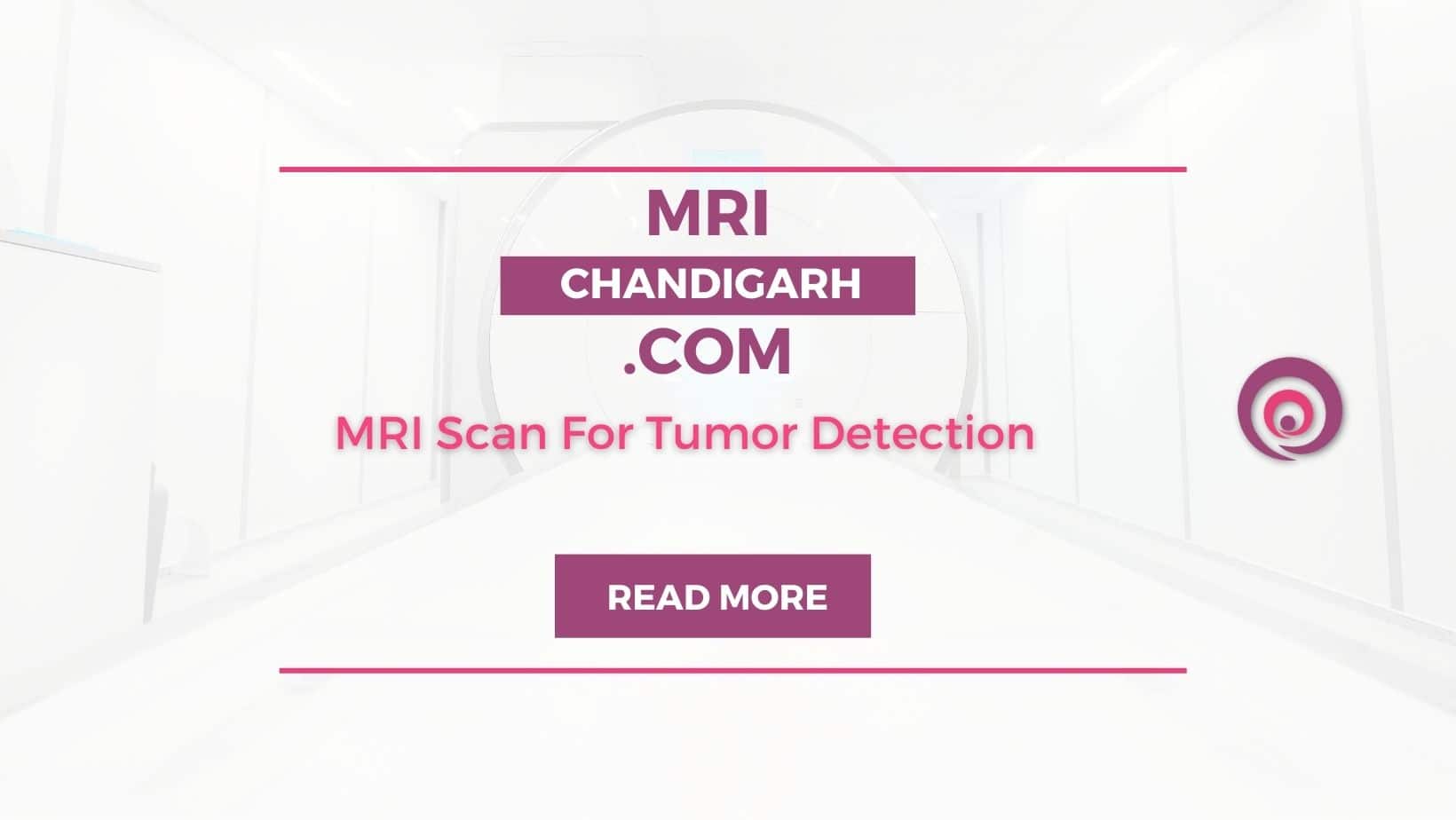Whether your doctor writes it as Magnetic resonance imaging, nuclear magnetic resonance, MR, or MRI, it’s all the same. It is a diagnostic test that screens your internal body parts to detect a wide range of health conditions, even complex ones!
Tell me,
- Can you feel a lump growing beneath your skin?
- Did you recently experience an unintentional, absurd weight change?
- Do you have persistent cough and breathing trouble for the past few days?
- Did you notice a difference in your bowel habits?
- Do these health problems of yours get accompanied by severe pain and high fever? Or unusual bleeding and discharge?
Sorry, but these are the early signs of tumors underlying your body, and your doctor is likely to order an MRI scan thereafter to confirm their presence, if any, and also understand their nature.

This blog sketches out all you need to know about this MRI scan for tumor detection. Do not hesitate to see it!
What Is An MRI and How Does It Work?
An MRI scan is the safest diagnostic modality existing in the healthcare industry today! It is a –
- Non-invasive,
- Painless test, and
- Do not involve any radiation!
Hence, you are free from the risks of further health complications.
The MRI procedure utilizes powerful magnets and computer-generated radio waves to produce internal imaging. Doctors typically recommend it to reach the soft tissues in your body and extract clear pictures.
The scan takes place in more or less all hospitals, clinics, and radiology centers under the supervision of a professional radiologist.

During the scan –
- You may or may not receive oral or intravenous contrast administration. If you do so, this shall remain the first step, and this is to enhance the image clarity and mark differences between soft tissue and abnormal tumor-like growth.
- Then, you lie on a moveable table or bed attached to the giant MRI scanner, no less than a donut in Outlook!
- The radiology technicians shall provide ear cuffs and eye masks to eliminate anxiety and discomfort inside that semi-circular tube-shaped machine. It is more because the machine makes a loud crackling noise while scanning.
- When you are inside the scanner, the magnets attached to its walls provoke your cellular molecules to move from their position, and the radio waves meanwhile stand ready to track them when they move back and send signals to the computer console.
- The radiologist stays right in front of the computer screen, checking how well the images appear, and may direct you to shift to another position or hold still for a couple of minutes. You certainly have to follow what’s asked if you seek to fetch an accurate diagnosis!
Once the radiologist is satisfied with the imaging, likely within an hour or so, at the maximum, you will be free to leave for your office or home.
Why Do Doctors Prescribe An MRI Scan For Tumor Detection?
While a traditional X-ray and Computed Tomography or CT scan may fail to detect certain tumors in your body, such as those in your brain, soft tissues of your liver, deeper breast tissues, or your heart, an MRI scan has much less of a possibility to fail. In short, an MRI scan has proven efficacy in accurate and precise tumor detection over other diagnostic modalities.
That is perhaps the primary reason for your doctor to recommend an MRI scan for tumor detection. With the help of MRI images, your doctor wants to look at –
- The exact location of the tumor,
- The size and shape,
- Numbers,
- Whether the surrounding areas have swelling or infection,
And also –
- Differentiate a tumor from other abnormal masses, like cysts, polyps, or fibroids,
- Measure the amount of calcification,
- Assess whether the tumor is benign or cancerous, and
- Determine the cancer stage, if it is so!
Without all of this information, your doctor cannot really proceed with the best suitable treatment!
Your doctor may recommend an MRI to detect a bone tumor, brain tumor, thoracic tumor, tumors in your kidney, liver, stomach, pancreas, bladder, uterine, and more.
How Accurate Is An MRI Scan For Tumor Detection?
Of course, like any other imaging test, an MRI is also not 100% accurate. However, it is considered the gold-standard modality for tumor detection in the medical field. Experts say MRI scans can precisely show the tumor enhancement pattern that an X-ray, CT, or PET may not!
- Studies show that MRI scans hold a 93% accuracy in diagnosing tumors compared to 48% in the case of biopsies.
- A Science Direct Study reveals that an MRI is 100% sensitive and 91% specific in detecting gliomas, i.e., a typically malignant brain tumor.
- According to the National Institute of Health, an MRI scan has almost 100% sensitivity and 98% specificity in detecting bone tumors.
- National Health Institute also records that MRI scans have an 89.9% sensitivity rate in diagnosing papillary renal cell carcinoma, a cancerous tumor in your kidney lining. But, the American Journal of Roentgenology highlights that it’s 85.6%.
- Another latest study notes that MRIs are nearly 73.3% accurate in detecting gastric carcinoma, a malignant tumor within your stomach.
- Studies also show that an MRI is about 93% accurate in identifying prostate tumors.
- As per the Radiological Society of North America, an MRI reserves 77% to 96% sensitivity in locating breast cancers.
Undoubtedly it’s way ahead in accuracy and dexterity than other imaging studies for overall tumor detection.
Is An MRI scan For Tumor Detection Safe?
Yes. An MRI scan is safe for people of all age groups, pregnant and breastfeeding women, those having heart diseases, and everyone who does not have a metallic implant in the body. Neither does an MRI require any wear and tear in your body nor does it bring heavy setbacks like radiation-caused kidney damage or heart failure.
However, it is essential for you to note that a contrast-enhanced MRI scan does have certain temporary side effects. They are –
- Skin rashes, ‘
- Redness in the skin,
- Itchy skin,
- Swelling near the area of intervention,
- Allergic reactions,
- Often throwing up,
- Headache
- Nausea,
- Fatigue,
- Mild to moderate fever, etc.
These health symptoms appear due to the presence of the contrast dye inside your body and are bound to leave once the contrast dye takes an exit! You can look for a few natural remedies to heal quickly, like –
- Drinking a lot of water to flush out the contrast dye faster,
- Drinking herbal teas to soothe your brain receptors and deal with headaches,
- Applying ice to the skin to reduce swelling, rashes, redness, or itchiness,
- Taking a hot bath to get relief from the immense tiredness, etc.
When Do Doctors Opt For An Alternative To Detect Tumors and Not MRI?
If you have a –
- Cardioverter defibrillator,
- Pacemaker,
- Cochlear ear implant,
- Dental fillings made by Metal,
- Metallic plates in your joints, or
- Metallic aneurysm clips,
Your doctor would plausibly opt for an alternative scan to detect tumors and not an MRI. It is because the presence of metals near the magnet may not only send false signals to the computer console and tamper with the results but may also lead to injuries.
Another time your doctor opts for a different imaging test over MRI is during unavailabilities or access to MRI machines. Or maybe because it is expensive for you, and an ultrasound or CT can help!
Takeaway:
So, your takeaway from this blog is that an MRI scan for tumor detection is a simple test and nothing to fear about! All you have to do is stay in touch with your doctor and ask about the preparation from the respective healthcare providers.
You may have to stop taking certain medications and modify your diet. Follow as your healthcare providers say.
For more insight on MRI scans or an MRI scan booking in Chandigarh, keep an eye on www.mrichandigarh.com.

Comments